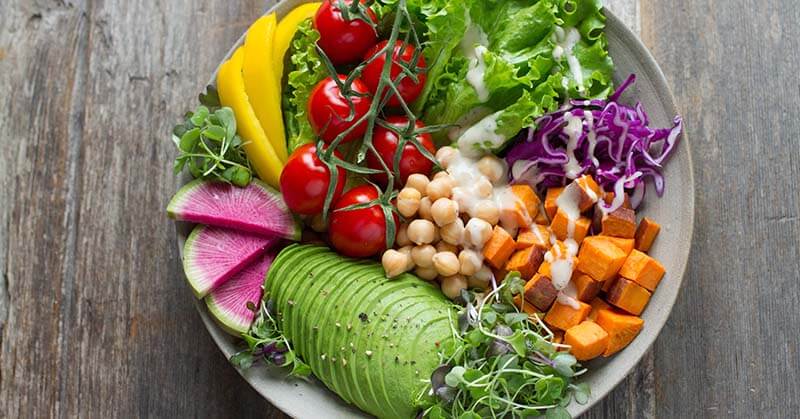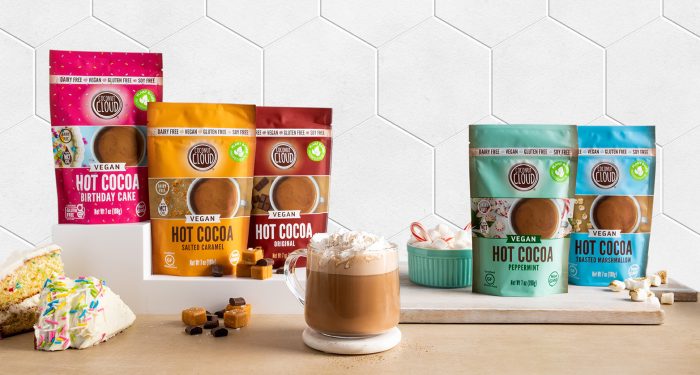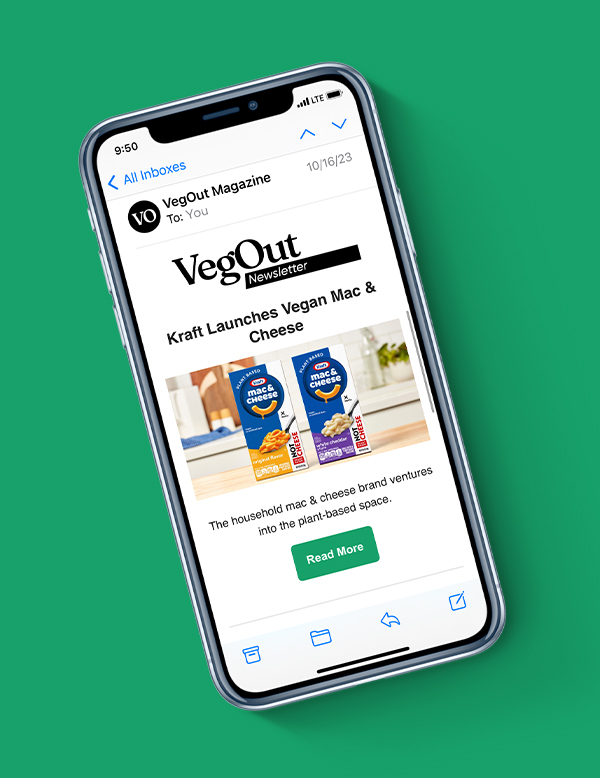In honor of Earth Day, we put together some simple ways you can make a positive impact on the planet, and it all begins with the food on your plate! From reducing greenhouse gases and deforestation to protecting our topsoil and eliminating pollution, these tips will have you feeling great about eating great.
Here are 9 things you can do to go gently on Mother Earth.
Eat More Plants!
Luckily, in 2020, it has never been easier to adopt a plant-based diet, and research shows that eating more plants reduces greenhouse gas footprints by 70%! Even better, the foods that are good for the planet happen to be great for your health as well, as countless studies have shown that a well-rounded plant-based diet lowers rates of heart disease, diabetes, and cancer, and increases longevity, meaning not only are you more likely to live longer, but you’re healthier as well.
Choose Whole Foods
We know (and love) that almost every animal product has a vegan replacement on the shelf. While we love indulging in those vegan burgers and ice creams on occasion, sticking to plant foods in their whole form means less processing (and therefore fewer emissions) and less packaging that needs to be recycled, composted, or thrown in the trash. A whole food plant-based diet—including fruits, vegetables, legumes, whole grains, and nuts and seeds—also means reduced sugars, oils, and other additives, and it happens to be cheaper too!
Shop Farmers Markets
This tip checks a lot of boxes. For starters, choosing a local farmers market rather than a mega-grocery means food will be fresher due to shorter travel distances, which also means fewer emissions. Shopping locally also involves less packaging—bring your reusable bags as always, and ask if your produce can come with you sans plastic. Supporting your local farmers not only improves your local economy, but it can be a great way of knowing where your food comes from and increasing the nutrient density of your food. Honestly, what’s not to love here?
Cut Food Waste
Nearly one-third of all food produced in the world goes to waste each year. Not only does that uneaten food use unnecessary resources (seeds, water, energy, land, fertilizer, money, and human labor), but it also creates large amounts of greenhouse gases. Before shopping, make sure to use what food you have, and stick to buying only what you need. Avoid over serving food at meals, and save or freeze leftovers rather than throwing away extra food. Repurpose waste where possible, either by composting yourself or using veggie scraps to make a yummy broth for future recipes. Opt for staple foods that come in glass jars or (BPA-free) aluminum cans, and always say no to single-use plastic. When traveling, or if you’re just out and about, make it a habit to bring along a zero-waste kit that includes a cup/mug, reusable straw, and cutlery!
Buy Produce in Season
While it’s tempting to buy strawberries in the dead of winter, opting for seasonal produce is an easy way to help the planet! When we buy produce that’s in season, we decrease the amount of fossil fuels used in transporting those fruits and veggies. It’s also cheaper and reduces our reliance on pesticides and chemicals, which are used to grow produce out of season and are necessary to make the produce last longer for transport.
Need another reason to get on board? In season produce is more nutritious (and tasty) for you and your family. Food shipped long distances is picked early to survive the longer transit times, so the produce has not yet reached its full nutritional maturity. Do some research to find out what’s in season in your area, and pick your favorites.
Support Regenerative Agriculture
Standard conventional agricultural practices deplete soil, and the process makes farmers and land reliant on chemicals, fertilizers, pesticides, and herbicides. Regenerative farming, on the other hand, eliminates tillage of the soil, increases the planting of cover crops, utilizes planned grazing, and eliminates the use of chemicals, resulting in healthier land and more nutrient dense produce. Sounds good to us!
Eat Organic
While the USDA Organic label is far from perfect, organic agricultural practices involve organic fertilizer, some soil-building practices like crop rotation, and a large reduction in groundwater pollution. Organic produce also uses no synthetic herbicides, pesticides, or fertilizers, and has been linked to a reduction in cancer risk. For a list of produce that has fewer pesticides than others, check out the Dirty Dozen and Clean 15 Lists published each year by the Environmental Working Group.
Choose Fairtrade
When shopping fairtrade, you’re not only supporting more ethical systems, but more environmentally friendly ones too! Fairtrade standards also can cover greenhouse gas and energy reduction, water and soil health, protection of biodiversity, and the prohibiting of genetically modified crops, as well as harmful chemicals. Keep an eye out for the fairtrade symbol on food products such as avocados, bananas, chocolate, and coffee.
Say No to Palm Oil
Palm oil is a vegetable oil made from the fruit of the African oil palm tree and is in about 50% of household items, ranging from food items like peanut butter and cookies, to cosmetics, shampoo, and detergent. Responsible for deforestation and the destruction of habitats and biodiversity, it also poses a threat to endangered species such as orangutans. Identify palm oil in the products you have and keep an eye out when shopping for new products, so you can bypass it altogether!
If you can implement even a few of the practices above, you will be on your way to living a life that is not only healthier for your body, but better for the planet as well!
















